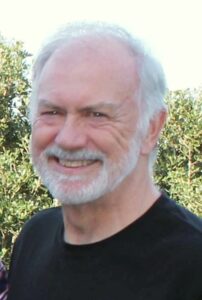Lynn Usher’s career in human services began with employment as an income maintenance eligibility technician, his first job after college. Although his graduate studies focused on public policy analysis and public administration (Ph.D., Political Science, Emory University), issues related to human services and public welfare continued to be at the center of his work. After teaching in graduate programs in public administration at Miami University and the University of North Carolina at Charlotte, he joined the staff of Research Triangle Institute (now RTI International) as a policy analyst, leading a number of evaluations of new federal programs, such as the 1981 Reagan welfare reforms, and research and demonstration projects sponsored by USDA and other federal agencies.
In the mid-1980s, Professor Usher left RTI for a year to help establish Northeastern North Carolina Tomorrow, Inc., a citizen-based social and economic development organization in the poorest region of the state. He returned to RTI in 1985 to direct the Center for Policy Studies, a position he held through 1992. He then joined the faculty of the School of Social Work where he taught research methods applied to the evaluation of social interventions.
Much of Professor Usher’s work at UNC involved evaluations of child welfare reform initiatives sponsored by the Annie E. Casey Foundation, the Edna McConnell Clark Foundation, the W.K. Kellogg Foundation, and the John D. and Catherine T. MacArthur Foundation. He also directed evaluations of efforts to reform North Carolina’s child welfare system. Consistent with work earlier in his career, these projects involved the use of administrative data to construct longitudinal databases describing the experiences of families and children who become involved with the child welfare system.
Integral to most of Professor Usher’s projects were efforts to build evaluation capacity within participating agencies and communities. His technical assistance efforts in this area also involved service on numerous federal advisory groups and consultation with private foundations and governmental grantmaking agencies and institutes.
Now retired, you may contact Professor Usher via this link to electronic mail.

